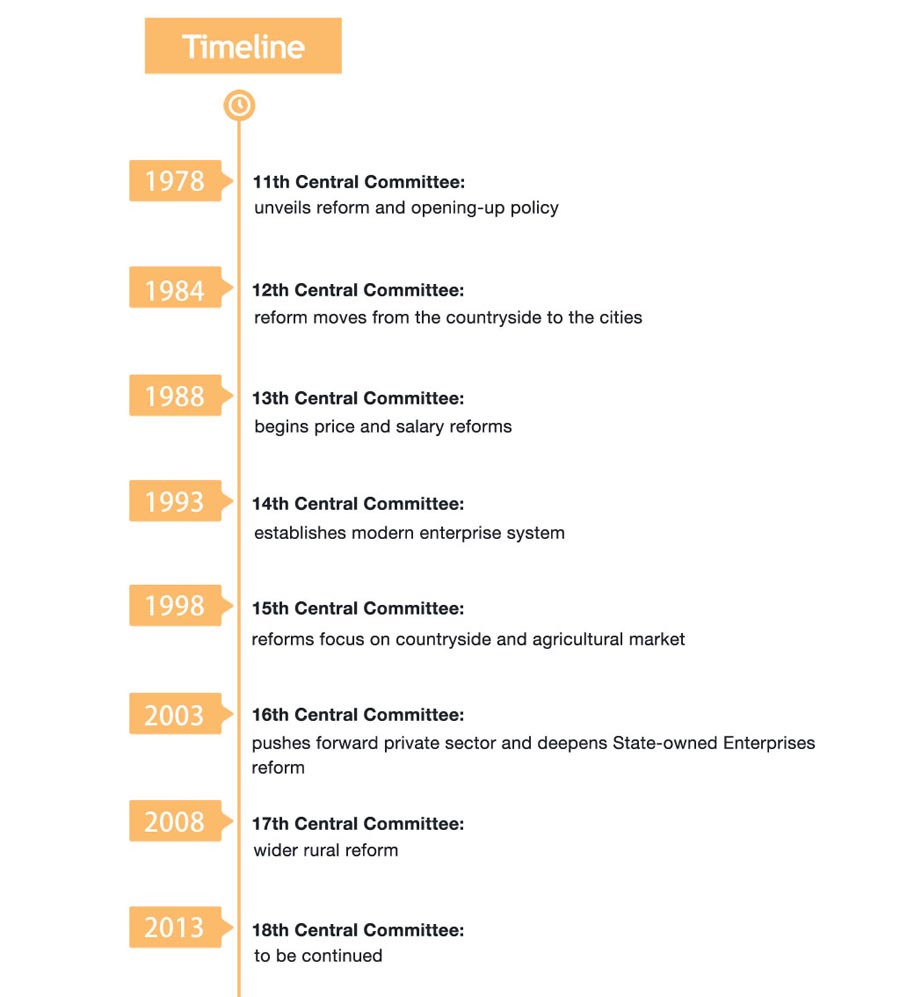
| Editor's Note: The previous Third Plenary Sessions of the Central Committee of the ruling Communist Party of China (CPC) in the past three decades introduced major reforms that were pivotal to the country's development. The 18th CPC Central Committee, composed of more than 200 senior Party officials, will convene its third plenum on November 9 - 12 to discuss major economic and social issues concerning comprehensive reform. Here, in this special coverage, China Daily Website takes a look at the major issues that might top the agenda at the upcoming meeting. |
| Latest news |  |
| The Third Plenary Session of the 18th Communist Party of China (CPC) Central Committee will be held between November 9 and 12 in Beijing. | |
|
Third Plenum to focus on reform Experts said they expect the meeting to set China's economic agenda. |
|
|
Analysts and industry insiders call for deepened financial reform to guarantee healthy economic growth. |
|
Major issues & Preview
|
|
 |
|
|
|
|
|
|
|
|
|
|
|
|
|
|
|
|
|
|
|
|
Infographic - Migration & Urbanization
|
|
Previous Third Plenary Sessions
|

|
|
|
|
|
|
|
|